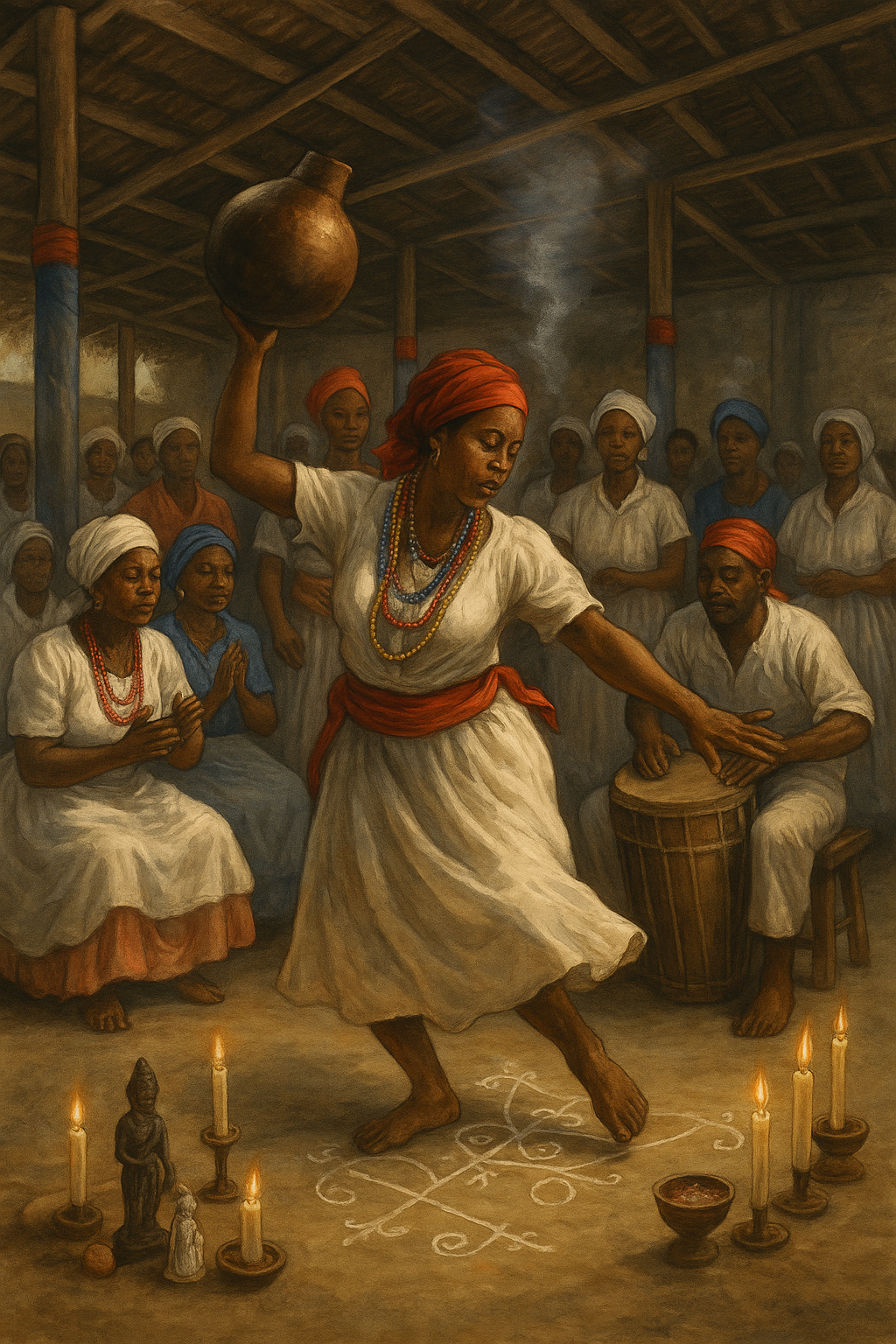
In a world filled with misconceptions and stereotypes, the topic of Vodou often stirs up intrigue and fear. Many people continue to ask the question, Is Vodou evil? perpetuated by historical biases, colonial fear-mongering, and sensationalized Hollywood portrayals. However, it’s time to look beyond the myths and genuinely explore Vodou as a vibrant, living religion that champions healing, respect, and community. By dismantling the harmful narratives surrounding this ancient practice, we can uncover its true essence and appreciate the rich cultural tapestry it offers.
Is Vodou evil? Understanding the truth behind misconceptions
Vodou has long been misrepresented in popular culture, often portrayed as sinister and malevolent. This portrayal stems from a history of racist propaganda and colonial narratives that sought to demonize African Traditional Religions, framing them as dark and mysterious. However, Vodou is a rich and vibrant spiritual tradition that emphasizes healing, ancestral respect, and balance. By understanding its true nature, we can dispel the myths rooted in fear and ignorance. Practicing Vodou means engaging with a deep-seated tradition that prioritizes community, reverence for the spirits known as Lwa, and a commitment to ethical living.
The idea that Vodou is evil is a misconception perpetuated by films like White Zombie and other media that sensationalize the religion. In reality, just like any other belief system, Vodou has its share of individuals who may misuse its teachings, but this does not reflect the religion itself. At its core, Vodou is about connection—to one’s ancestors, to the Lwa, and to the community. This beautiful spiritual path fosters personal growth and collective well-being, reinforcing the importance of respect and acknowledgment for all aspects of life. By unpacking these misconceptions, we create space for a more nuanced understanding of Vodou and its practices.
Does Vodou exclude certain people? Embracing inclusivity in practice
Vodou is fundamentally inclusive, welcoming individuals of all backgrounds. The Lwa, or spirits, operate beyond the confines of race, gender, sexual orientation, or disability. This openness reflects the essence of Vodou, which prioritizes sincerity and mutual respect over societal labels. While the path to working with the Lwa is unique to each individual, the spirits themselves are not discriminatory. They seek genuine connections and recognize the alignment and intention of those who reach out to them. Regardless of your background, you have the potential to forge a meaningful relationship with the spirits if your heart is open and sincere.
It's crucial to understand that while Vodou can be a deeply personal journey, it is not an exclusive club. Some individuals may feel drawn to this path, yet the Lwa must choose to engage with them. This natural selection emphasizes that Vodou is not about forcing oneself into a tradition but rather about finding a connection based on mutual respect and willingness. If you approach Vodou with an open heart and mind, you may find a welcoming community eager to share the teachings and practices of this rich spiritual tradition. In this way, Vodou stands as a testament to the power of inclusivity and the importance of authentic relationships within spiritual practice.
Do you need initiation to practice Vodou? Unveiling the journey of connection
Many people wonder if initiation is a prerequisite for engaging with Vodou and building a relationship with the Lwa. The truth is, initiation is not a requirement to appreciate or serve the spirits. Most individuals who practice Vodou do not undergo formal initiation, which can be an expensive and intensive process. While initiation holds significant power and importance within the community, respect and consistency in honoring the Lwa matter far more than any title or formal recognition. Anyone can cultivate a connection to this vibrant tradition through sincere offerings and genuine intention.
Walking the Vodou path requires more than just rituals; it necessitates a commitment to understanding the culture and engaging with the community. Authentic relationships with the Lwa are built on trust, respect, and a willingness to listen to spiritual guidance. While initiation can deepen this connection, it is not an exclusive gateway to the practice. By approaching Vodou as a living, breathing religion, practitioners can develop meaningful bonds with the spirits, fostering a sense of belonging that is rooted in sincerity rather than a formal title. Therefore, if you feel called to Vodou, embrace your journey and explore the many ways to honor the Lwa without the pressure of initiation.
